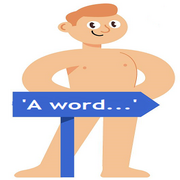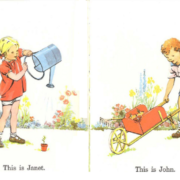OBJECTION #2: ‘Plain English is about banning new, long, unusual or interesting words’
I’m going to start my second blog in this series with a confession: I haven’t always been a fan of Plain English.
That’s because I believed this objection.
But as I soon learnt, contrary to popular belief Plain English / plain language (PE/PL) fans are not against new words. Nor, as I explained in a previous blog, am I. Just as well too, given that several thousand ‘new words, senses and sub-entries’ are added to the Oxford English Dictionary every year.
Furthermore, neither are we sufferers of hippopotomonstrosesquippedaliophobia. That’s the fear of long words, to you and me. Actually, it would be more accurate to say we don’t suffer from hippopotomonstrosesquippedaliomisia, or a dislike of long words. Only that one isn’t a real word 😁.
As for words that are unusual or interesting―and you can probably see where I’m going here―we’re not against them either, in principle.
________________________________
But yes, we do advise writers to say use, start and taller rather than utilise, commencement and increased, for example. That’s because when two words mean pretty much the same thing, PE/PL will always prefer the more familiar, precise and easy to understand.
For me the more interesting question is why so many writers plump for the word utilise over use, to continue our example. Again, I would welcome your own views on this.
I wonder if some do because they believe it lends their content (and possibly themselves) more grandeur or gravitas. They have yet to be persuaded, perhaps, that the goal of business writing is understanding not awe.
Others reject the simpler ‘use’, I suspect, because it fails to capture the shade of meaning they’re looking for. They have yet to discover that the trick is to pick the word that does―e.g. wield, brandish, exploit, insert, operate, apply, exercise, deploy, spend, handle, inject, manipulate, employ, consume, tap, develop, enjoy, exhaust…
________________________________
While not necessarily unusual, a few of the words I’ve listed above are uncommon in business writing. To me, that also makes them more interesting.
However, neither of those is the point here.
The only criterion that matters is whether the words you choose are the best at getting your meaning across precisely, concisely and understandably. That’s why PE/PL is not about banning new, long, unusual or interesting words; it’s about using the MOST APPROPRIATE ones.
And if that means using a new, long, unusual or interesting word―as I did with hippopotomonstrosesquippedaliophobia―do what I did and explain what it means in terms readers will understand.
Photo courtesy of Freepik.









 Freepik
Freepik